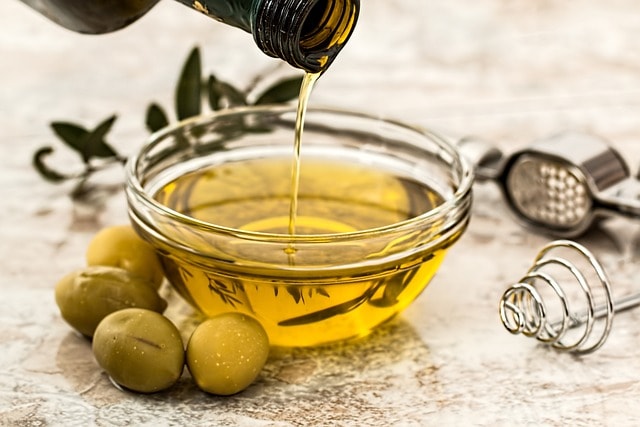
5 Healthy Cooking Oils To Choose
By Nutritional Weight and Wellness Staff
July 18, 2024
This article is based on our Dishing Up Nutrition midweek segment called Ask a Nutritionist. On that episode Monica Hoss, a registered and licensed dietitian, gave us great insight about the healthiest oils for cooking based on the question from one of our listeners.
Be sure to listen to the entire podcast episode for more in-depth discussions on oil extraction methods, the differences between various types of olive oils, and practical tips for storing and using cooking oils to maximize their health benefits.
Here's the question: "Which oils are good to use and which should I avoid? I've heard that olive oil will become rancid at high heat, but for years I've been using it to roast my veggies because I thought it was the healthy choice. Please help me understand which oils I should use and for which purposes."

What are cooking oils we recommend?
1. Extra Virgin Olive Oil
Best for: Salad dressings, dips, and low-heat cooking.
Why we recommend it: Extra virgin olive oil (EVOO) is rich in antioxidants and healthy fats. It’s extracted through cold pressing, which preserves its nutrients.
When choosing olive oil, look for "extra virgin" or "cold pressed" to ensure you're getting the highest quality.
Note: Olive oil is delicate and should be used for low-heat applications. Because olive oil has a low smoke point, it can become damaged and lose its nutritional value if heated above 300 degrees Fahrenheit.
2. Avocado Oil
Best for: High-heat cooking, frying, and roasting.
Why we recommend it: Avocado oil has a high smoke point (up to 500 degrees Fahrenheit), making it ideal for high-heat cooking.
Avocado oil is packed with monounsaturated fats, and because it has a higher smoke point, it retains its nutrients even at high temperatures.
Purity: Ensure the avocado oil is pure and not mixed with other oils. Check the label for 100% pure avocado oil.
Pro Tip: Store avocado oil in a dark glass bottle close to your stove for easy access during cooking.
3. Coconut Oil
Best for: Baking, sautéing, and medium-heat cooking.
Why we recommend it: Virgin coconut oil is a great option. It is cold pressed and retains many of its natural nutrients and flavor.
Coconut oil has a medium smoke point, making it versatile for various cooking methods.
Note: Just like olive oil, it’s best to use virgin or extra-virgin coconut oil to ensure minimal processing and maximum nutritional benefits.
4. Butter
Best for: Baking and low to medium-heat cooking.
Why we recommend it: Butter, especially when it’s grass-fed, contains beneficial fatty acids and vitamins.
Butter has a lower smoke point, so it's best for gentle cooking methods that don't use high heat.
Note: For higher heat, consider using clarified butter (ghee) instead, which has the milk solids removed, raising its smoke point.
5. Ghee (Clarified Butter)
Best for: High-heat cooking, frying, and roasting.
Why we recommend it: Ghee is made by heating butter to remove the milk solids, resulting in a pure fat with a high smoke point.
Ghee retains a rich, buttery flavor and is suitable for people with dairy sensitivities.
Pro Tip: Always heat your pan before adding ghee to prevent it from breaking down and oxidizing too quickly.
Cooking Oil Tips
Storage: Store oils in dark, cool places to protect them from light and heat, which can cause them to go rancid.
Smoke Point: Be aware of each oil’s smoke point to avoid burning and damaging the oil, which can result in harmful compounds.
Quality Matters: Opt for oils labeled as "extra virgin," "virgin," or "cold pressed" to ensure you’re using the healthiest options available.
Oils to Avoid
We don’t recommend using heavily processed oils, such as most vegetable oils, canola oil, soybean oil, corn oil, or those labeled as pure or light olive oil, or any refined oils that have been refined through processes like de-gumming, bleaching, or deodorizing.
These refined oils often have reduced nutritional value and can contain unhealthy trans fats.
Stick to cold-pressed, extra virgin, or minimally processed healthier cooking oils to ensure you’re getting the most health benefits.
By choosing the right cooking oil and using it appropriately, you can enhance your recipes and maintain the nutritional benefits of your cooking oils. If you have more questions, feel free to reach out!
Additional Resources:
Read: The Benefits of Coconut Oil: How to Pick A Good Source & What to Avoid
Listen: How to Choose Healthy Cookware








